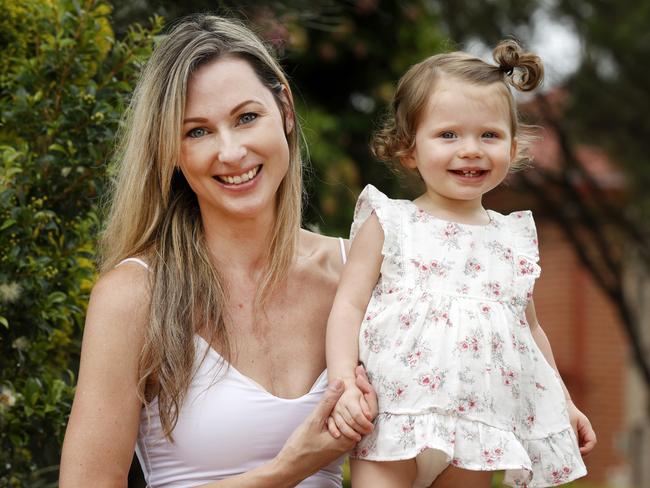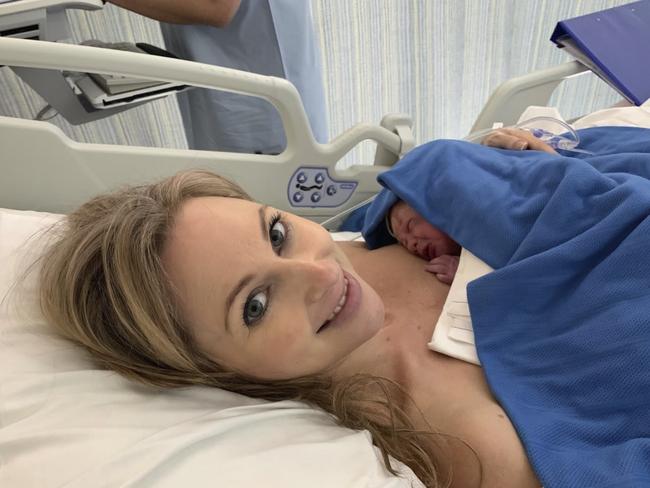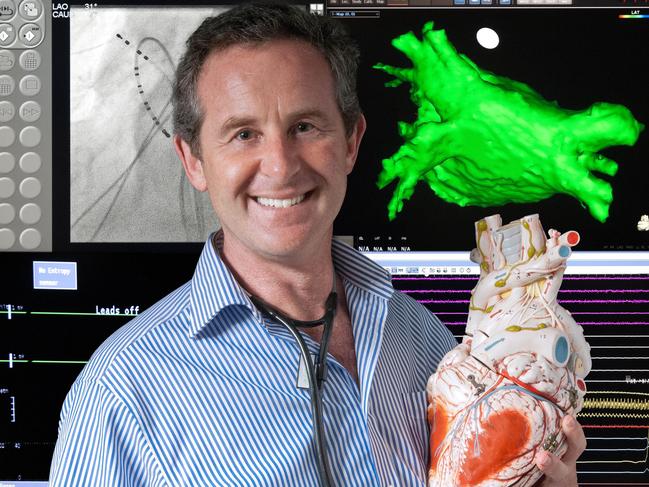‘Pioneering survivors’ lead doctors to create Aus NZ Congenital Heart Disease Registry
Recent advancements in treatment means there are now more adults living with congenital heart disease than children.
National
Don't miss out on the headlines from National. Followed categories will be added to My News.
Exclusive: It’s the biggest killer of babies in Australia.
And Natalie Reeves knows she is lucky to have survived well past her teens.
At 18 she learned she had a hole in her heart the size of a 50 cent coin that required lifesaving surgery and would leave her with little chance of having a normal life.
“In my case the hole was so large that it did indeed require surgery to correct it as soon as possible, as it was placing far too much strain on my heart,” the Sydney mother said.
“The last thing I expected at 18 was to prepare for open heart surgery.”

Ms Reeves, 42, is one of thousands with congenital heart disease (CHD) now living a healthy life who would once have been lucky to reach their teens.
These “pioneering survivors” have led doctors to create the first Australian New Zealand Congenital Heart Disease Registry.
Twelve hospitals treating people with CHD across Australia will take part in the national registry, which will help medical experts understand the disease better, track its prevalence and the outcomes of people living with the condition.

Clinical director of the Heart Research Institute Professor David Celermajer said the registry will monitor a patient’s medical needs as well as their other areas, including if they finished school or suffer mental health issues.
Prof Celermajer said the information will be critical in planning support services for patients, including organising psychologists and finding NDIS places.
“Children with CHD receive superb care when young, but as they become teenagers more than half get lost in the system when their care is transferred from a children’s hospital to an adult one,” he said.
“Some teenagers may be in denial about their condition, not wanting to feel that they need ongoing medical support despite parents and doctors urging them to continue.
“This can have dire consequences as the death rate and serious complications are over three times higher for those not receiving ongoing and expert medical care.”

Eight babies are born with congenital heart disease every day, with an estimated 2400 babies affected in Australia each year.
Prof Celermajer said recent advancements in treatment means there are now more adults living with congenital heart disease than children.
However, it also meant they’re living with complex health problems resulting in an unprecedented wave of “pioneering survivors” never seen before.
“It’s also about having knowledge to help CHD patients understand what the future might bring,” he said.
“For example, a pregnant woman will want to know how other women with CHD have coped during pregnancy, if there were complications and if there is an increased risk of the baby having CHD.
The project, run by the Congenital Heart Alliance of Australia and NZ, has already captured medical information from more than 15,000 patients, which is nearly 50 per cent of patients with CHD in Australia.
More Coverage
Originally published as ‘Pioneering survivors’ lead doctors to create Aus NZ Congenital Heart Disease Registry





